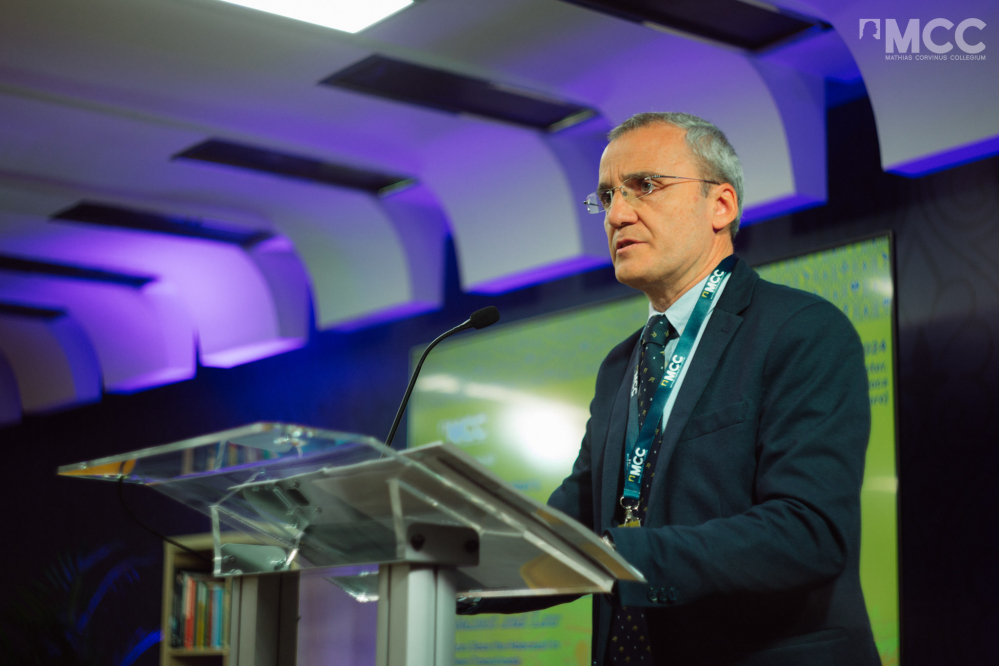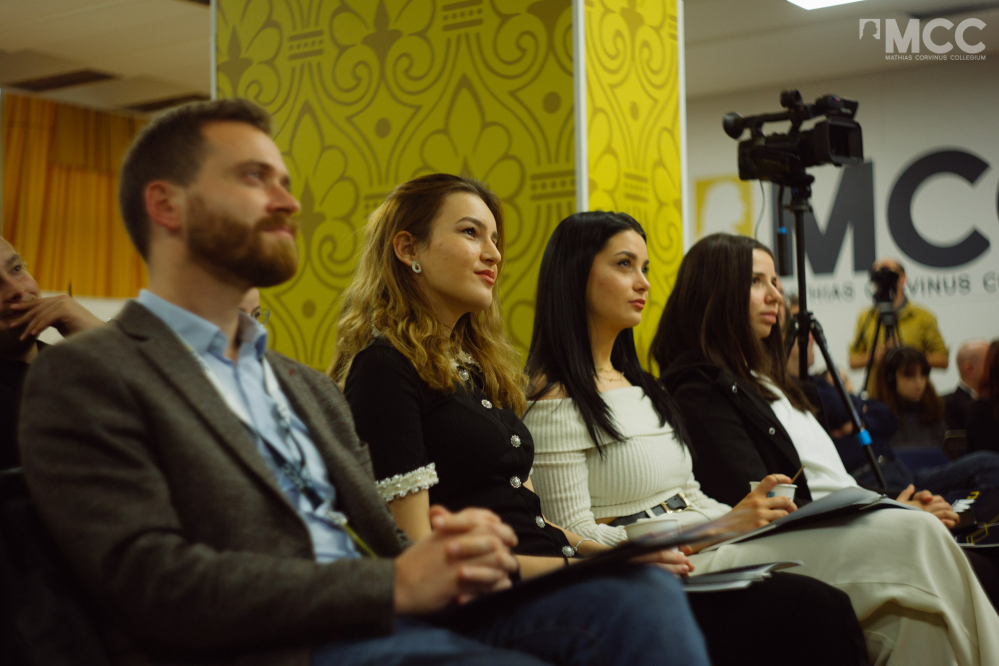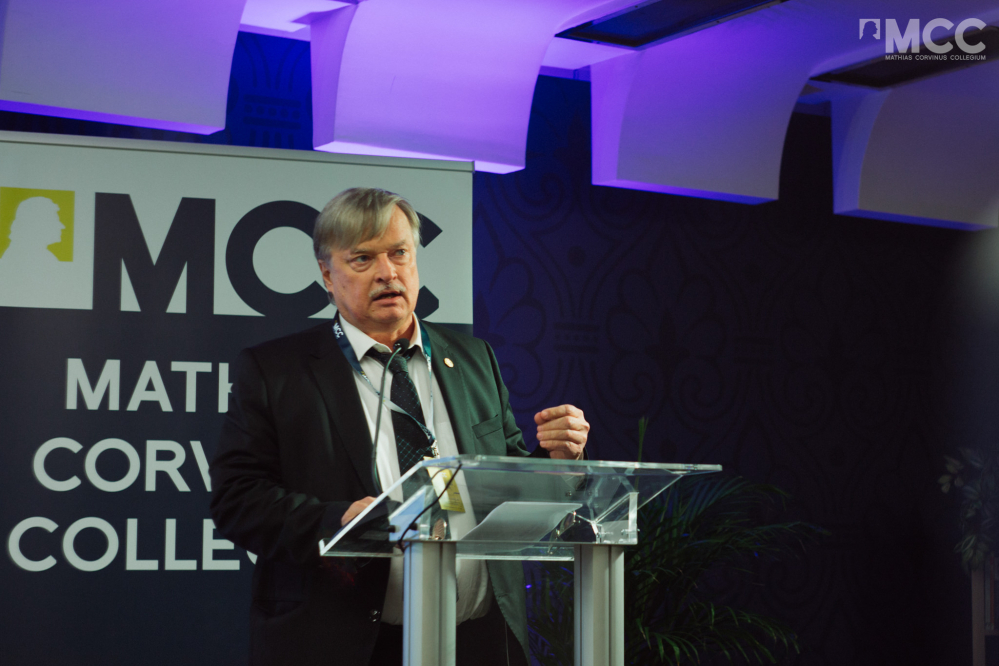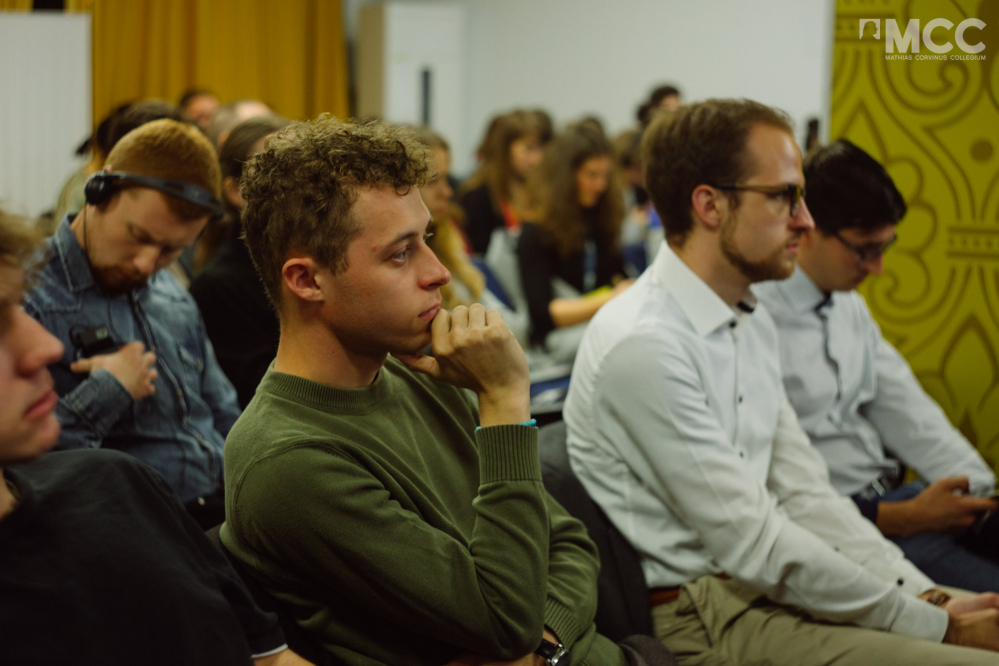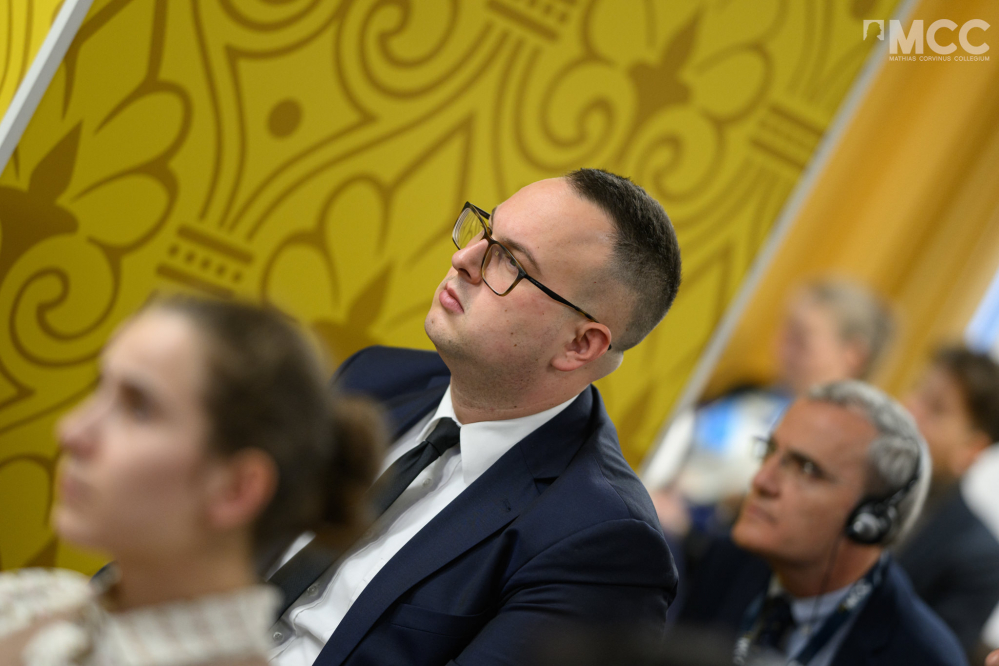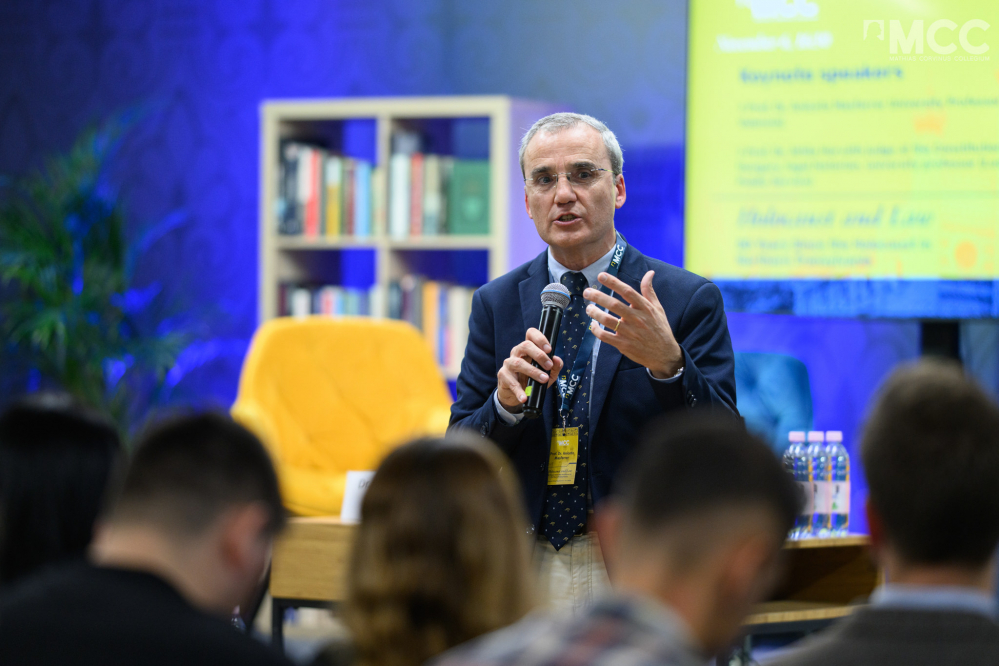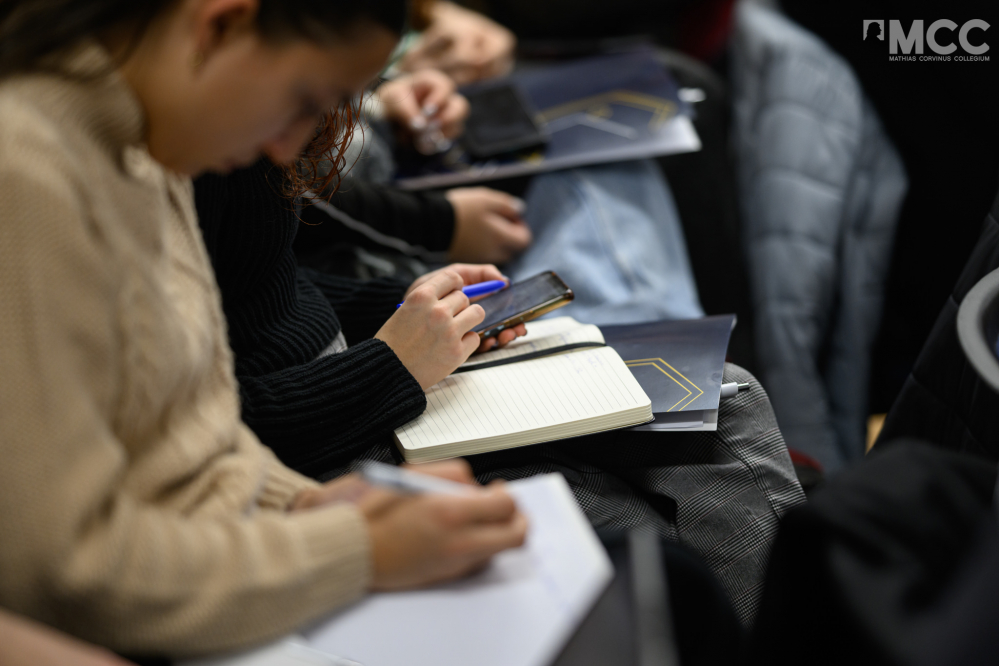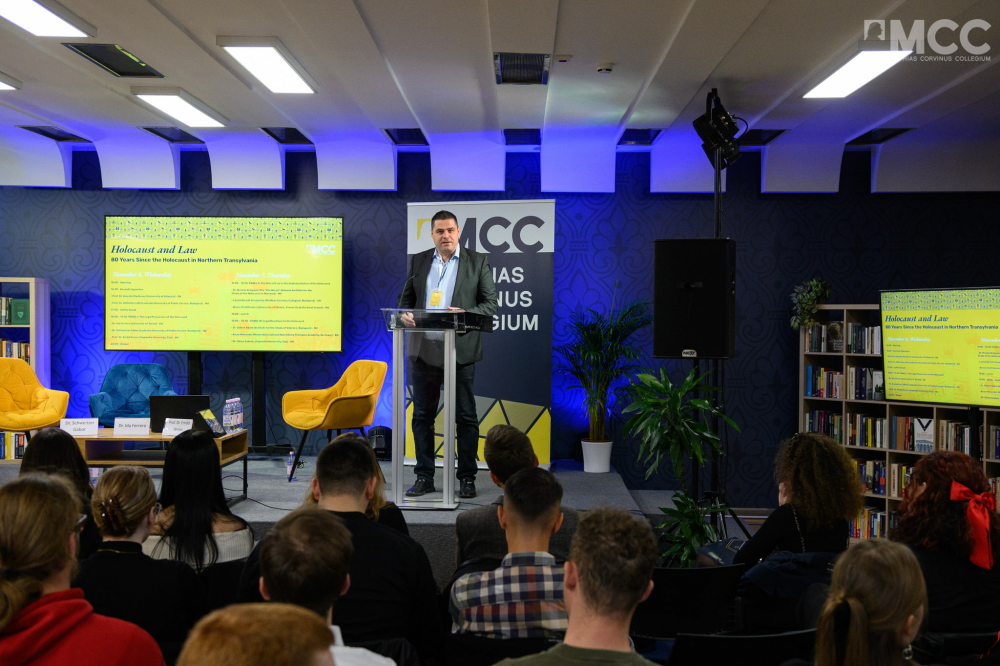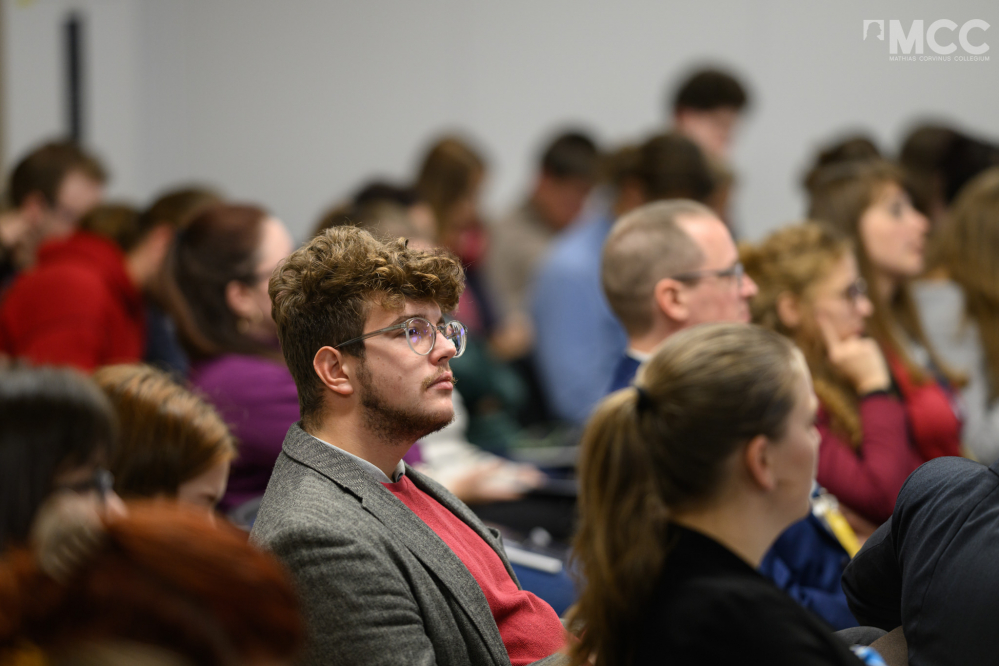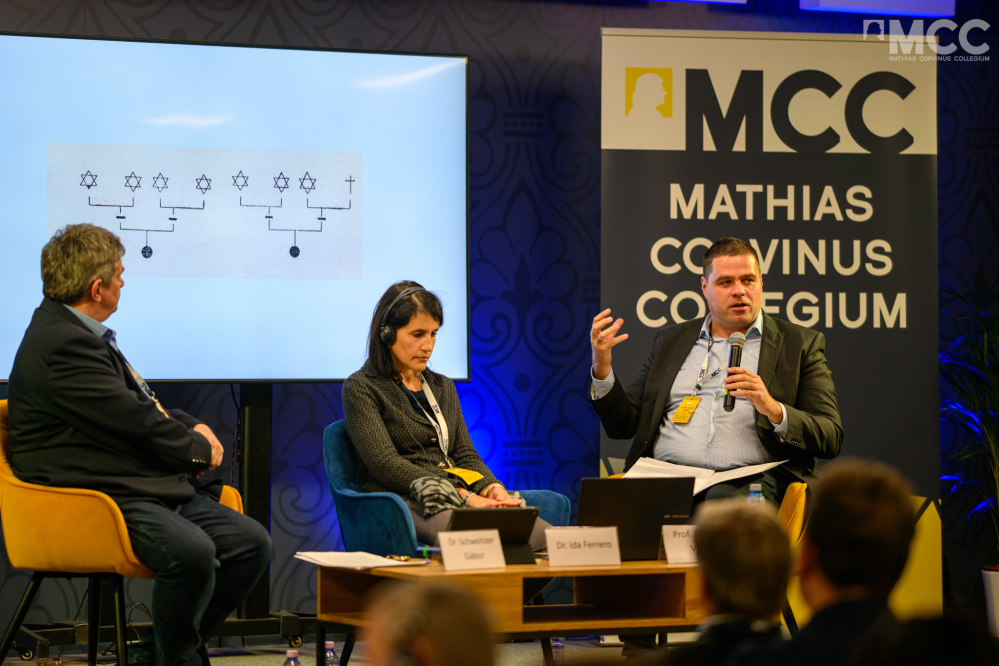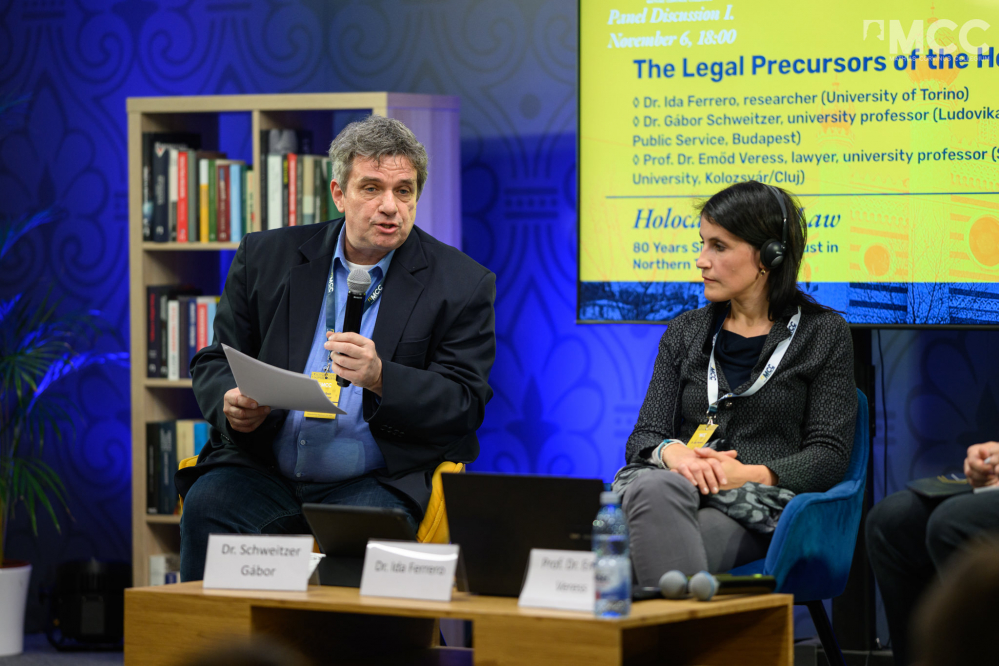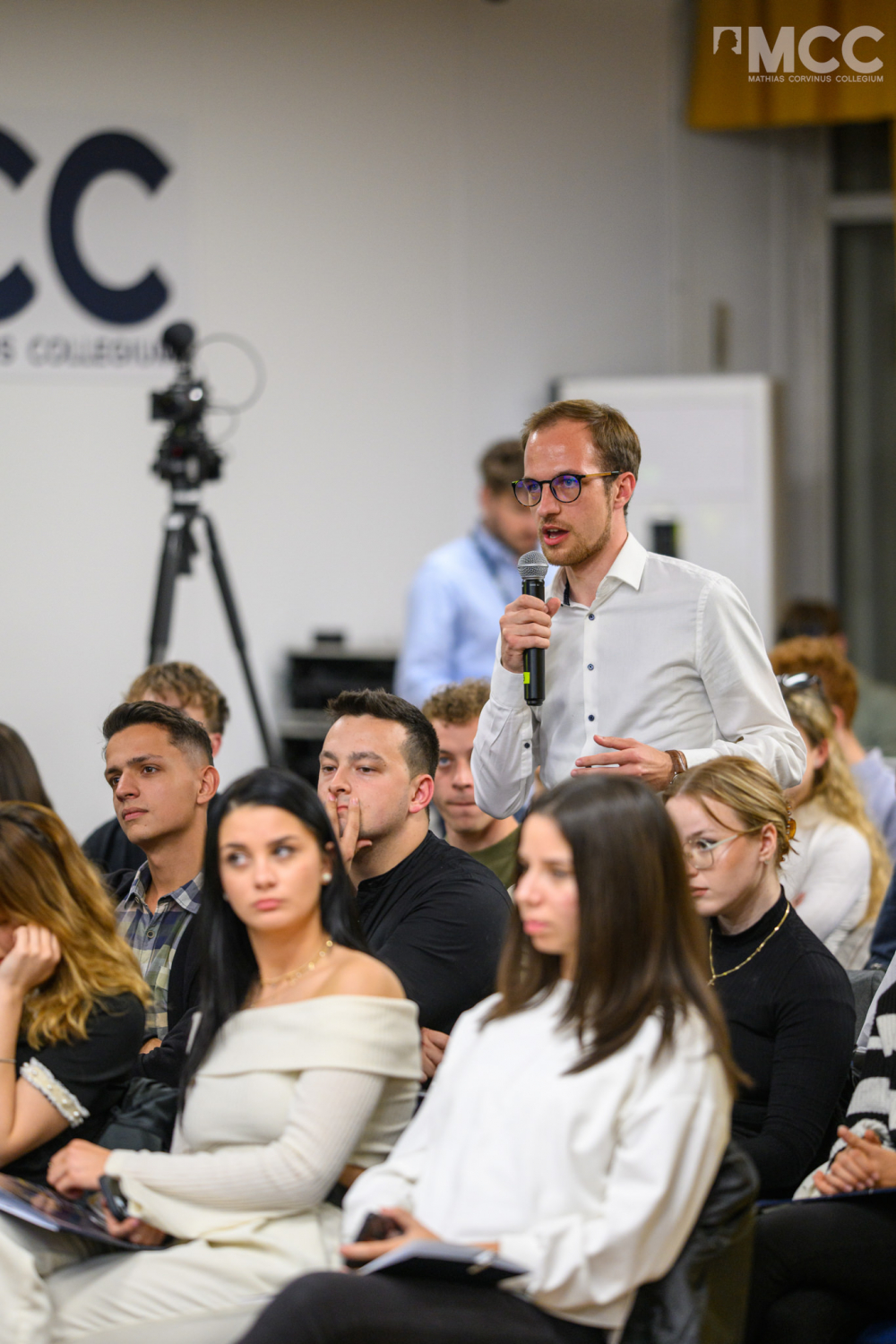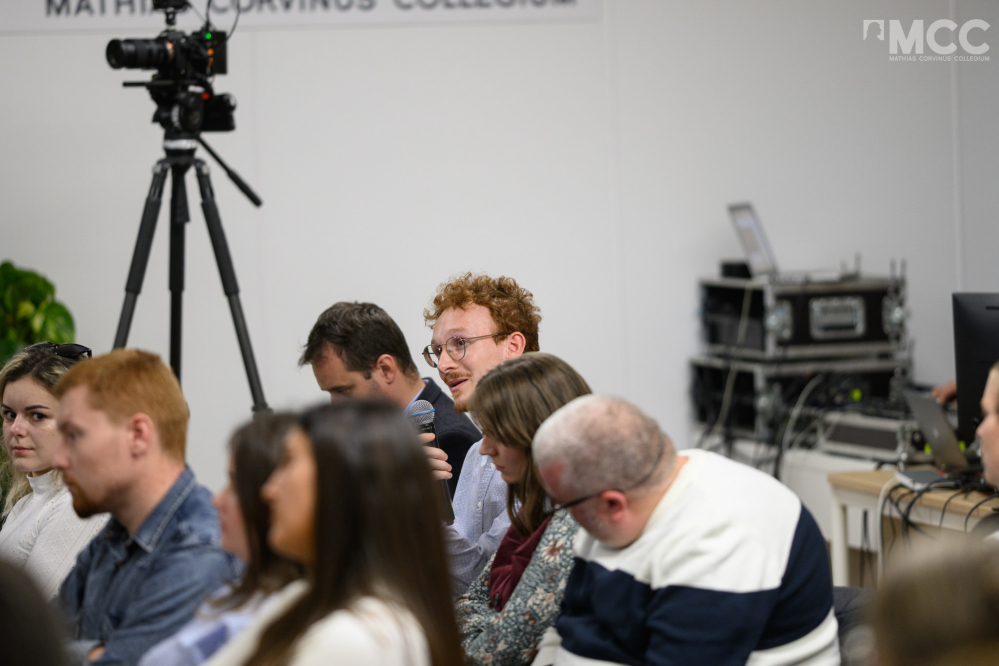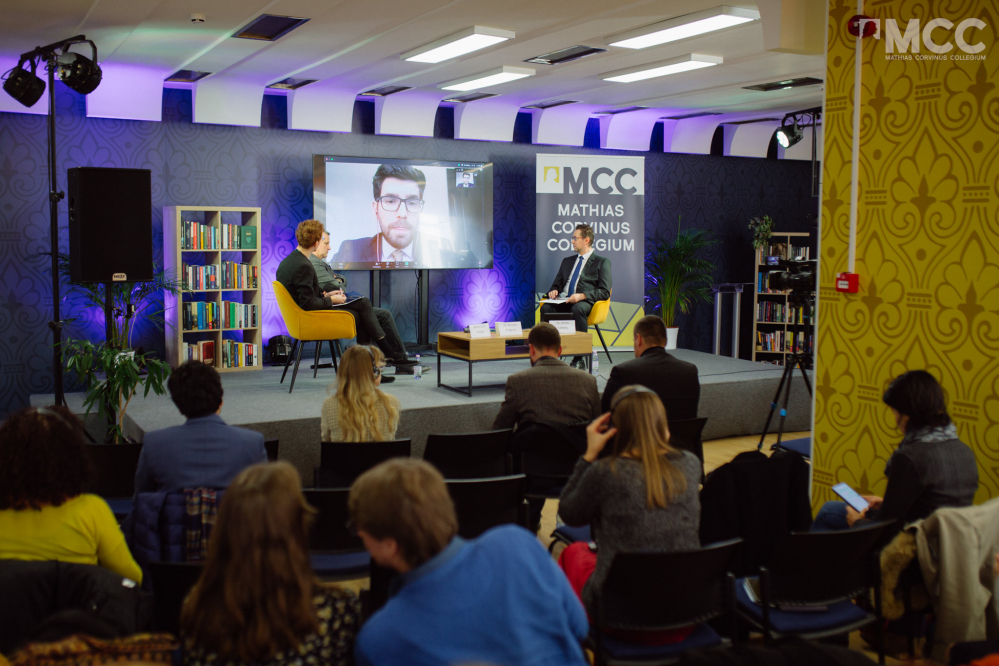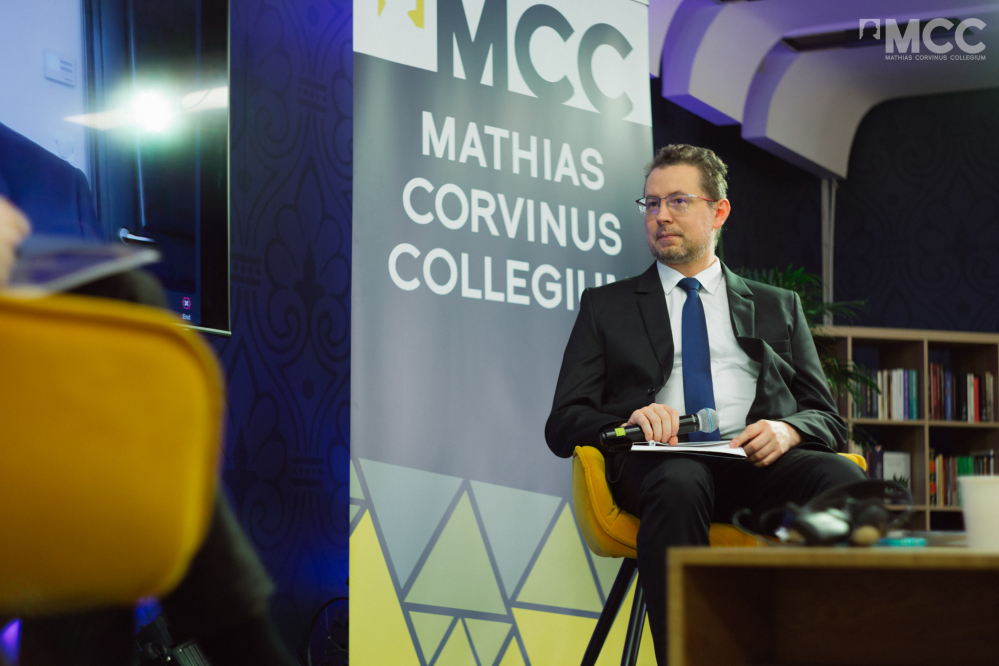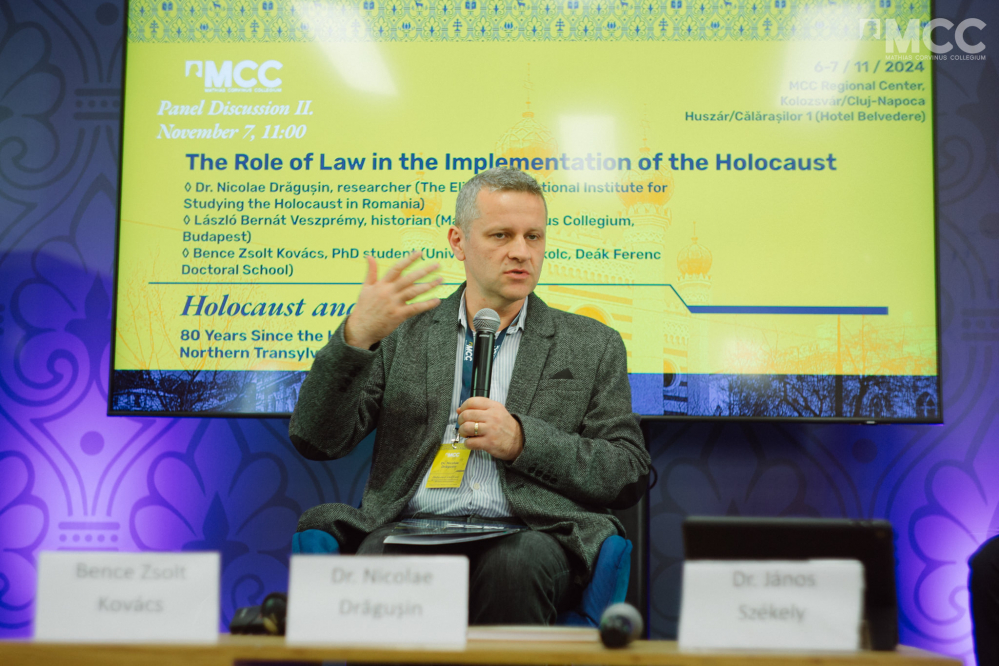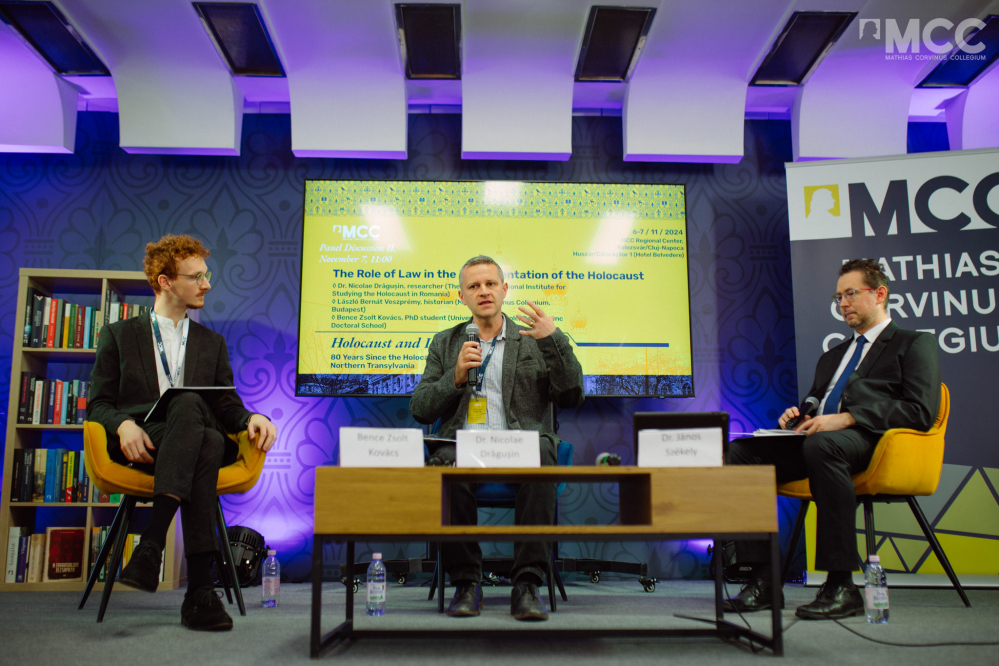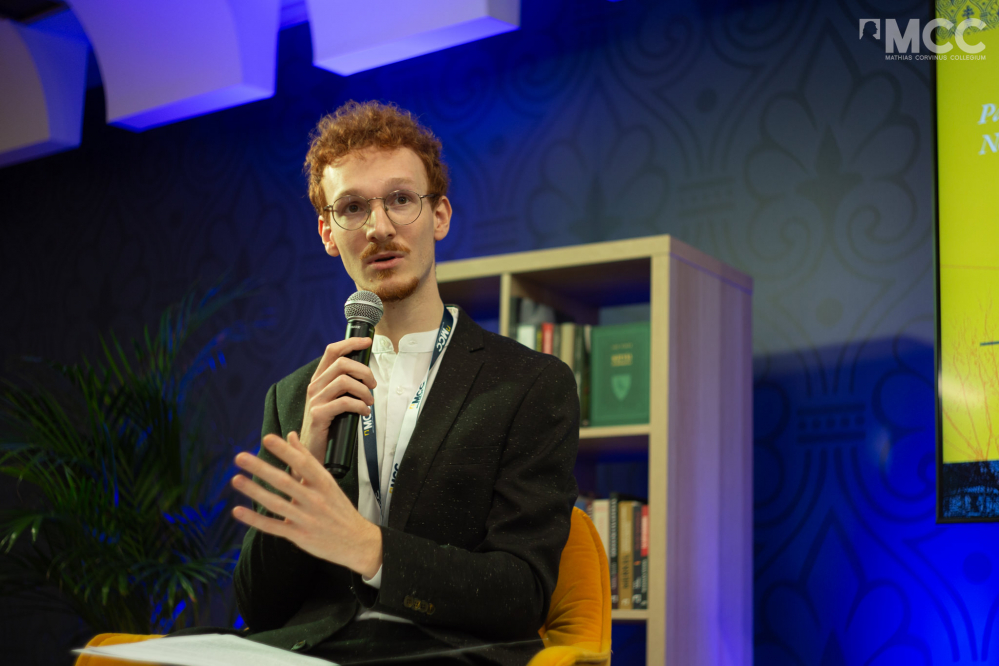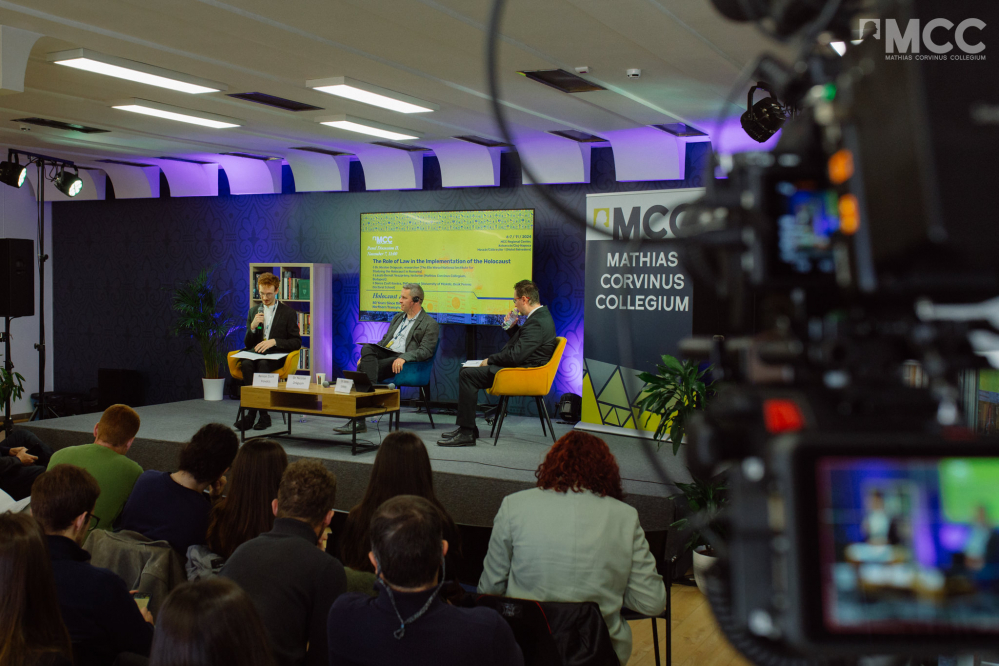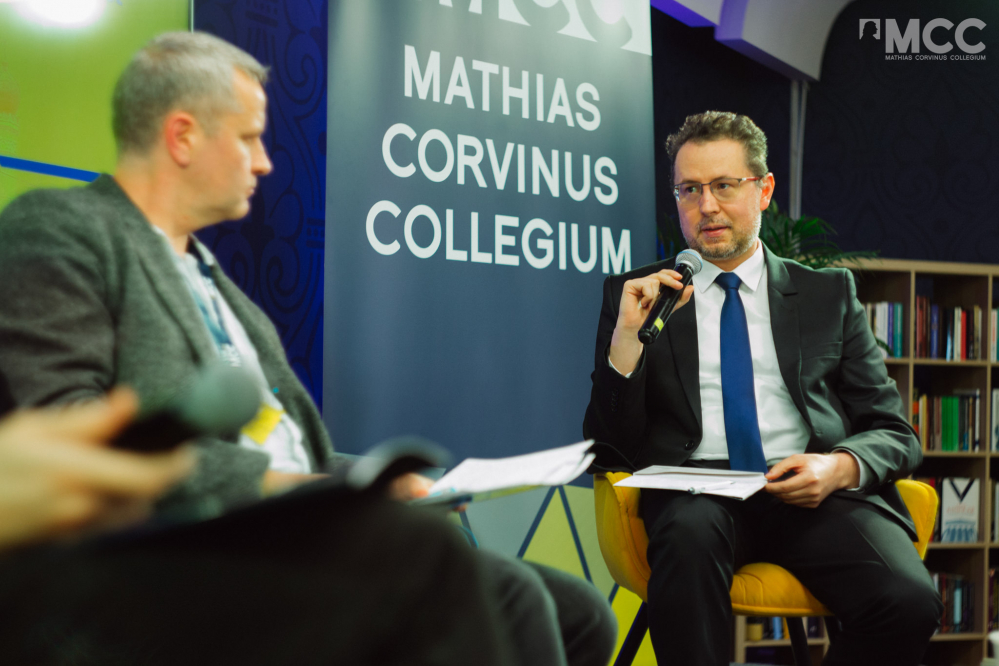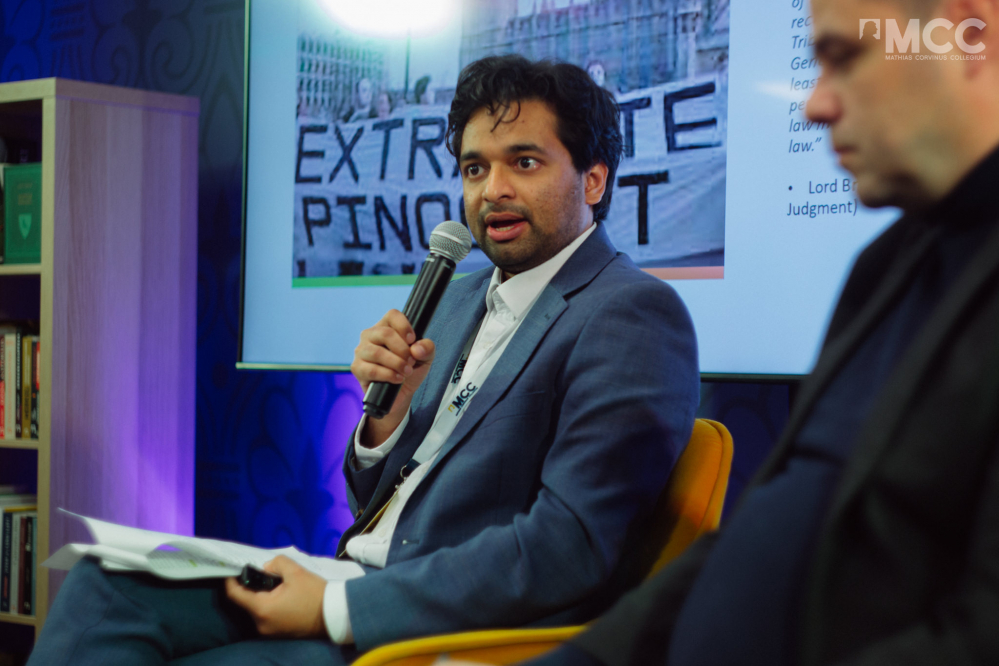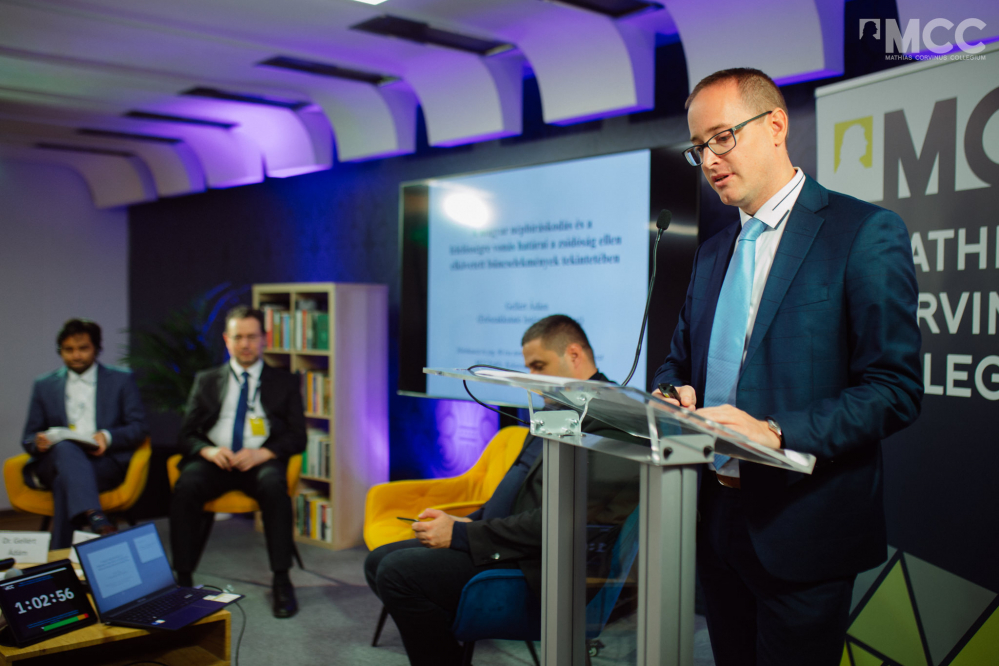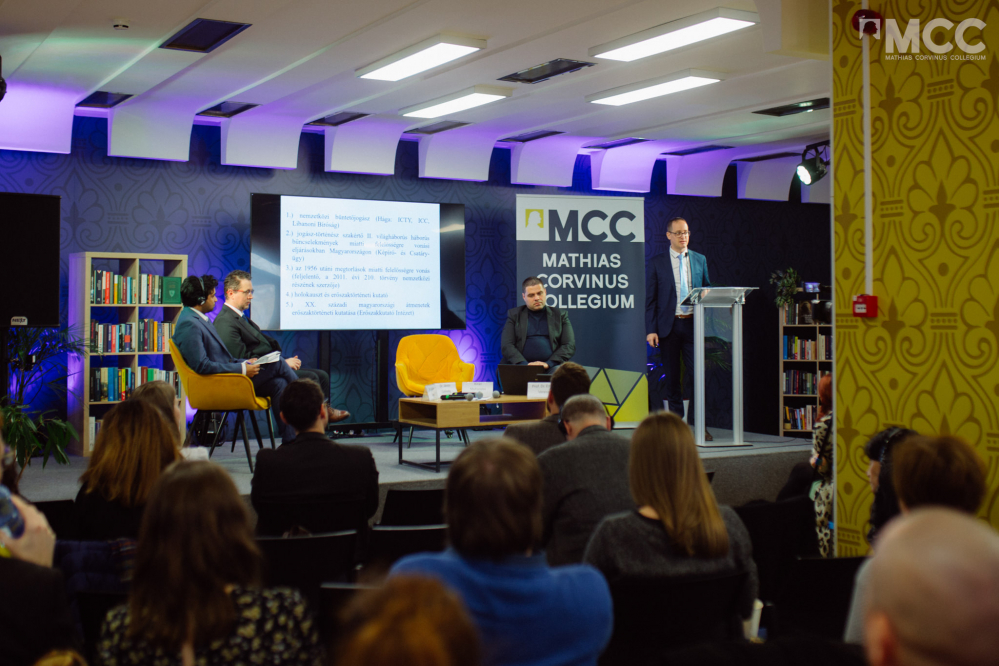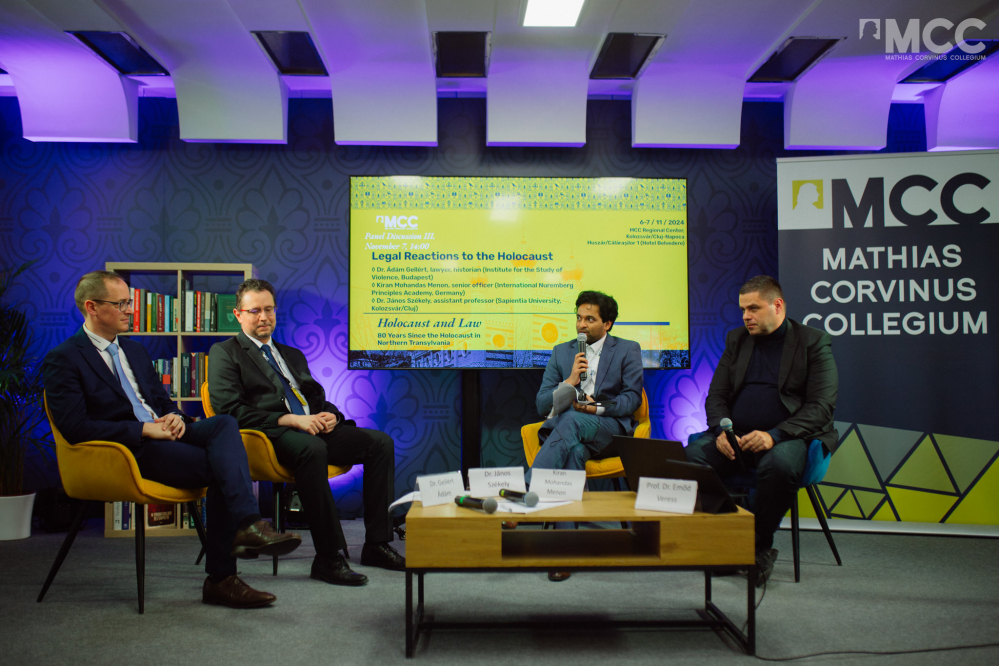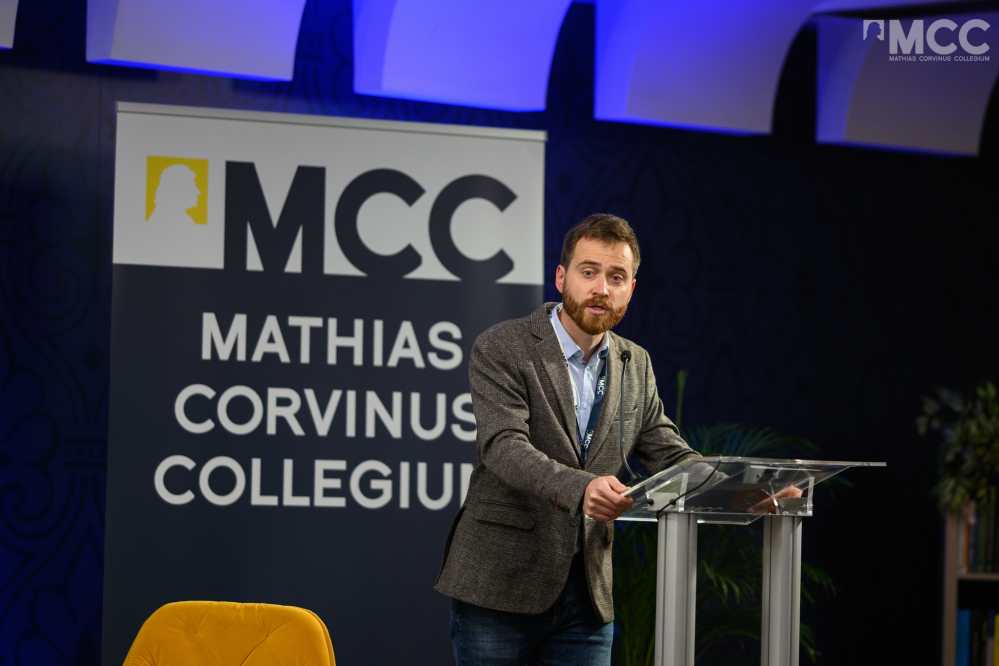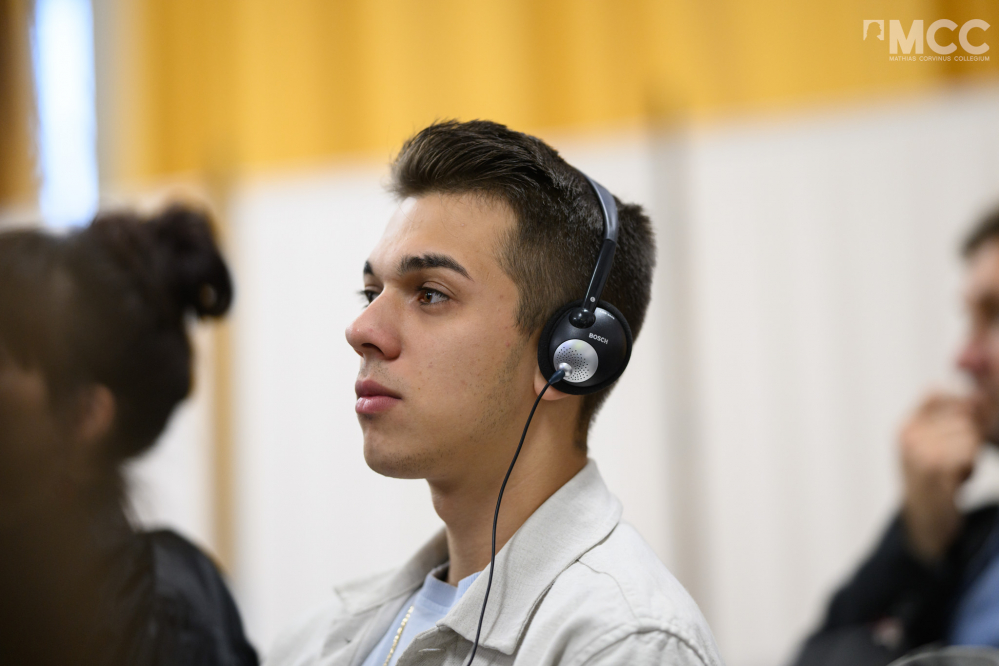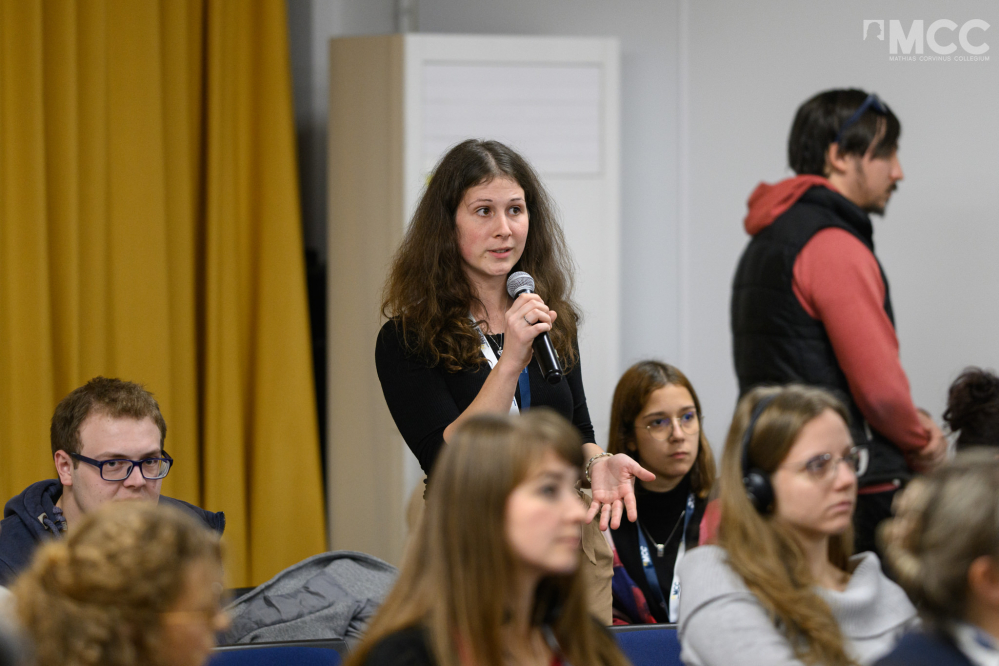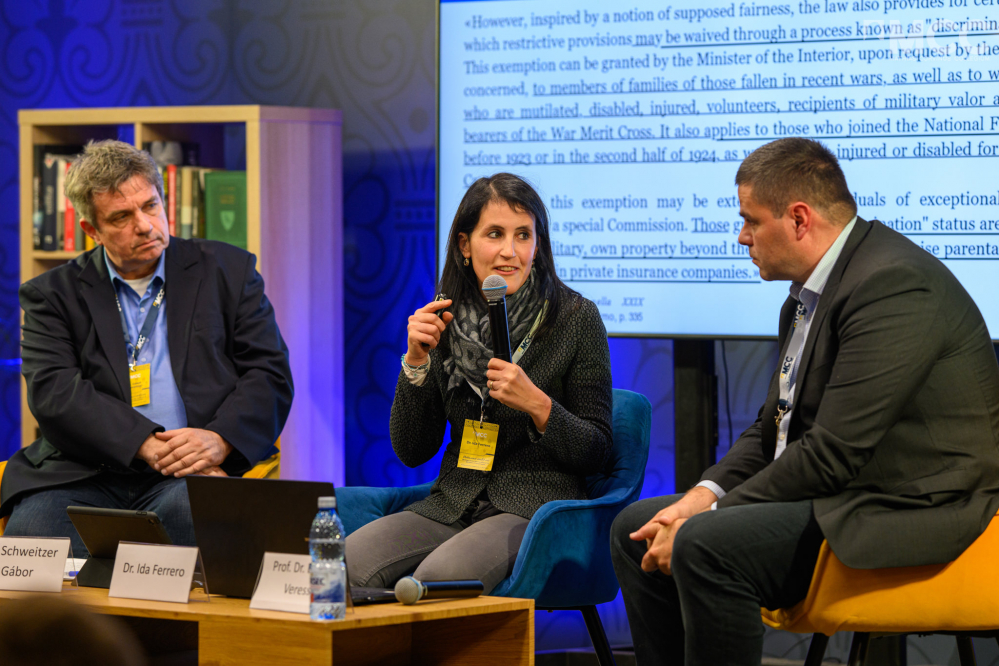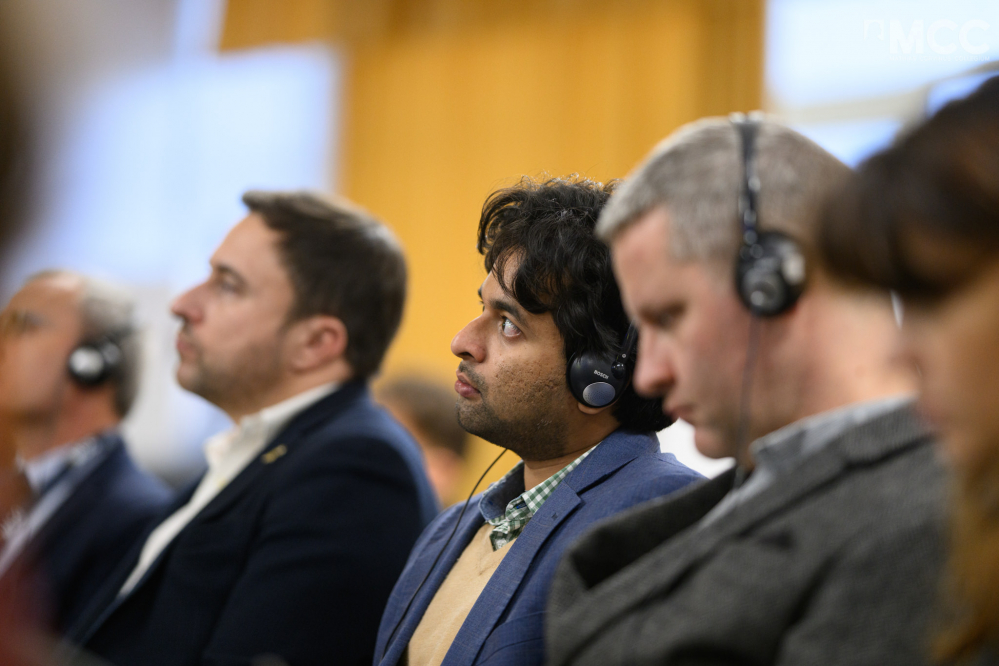Reading time: 7 minutes
It has been 80 years since Transylvania was affected by the Holocaust. Mathias Corvinus Collegium (MCC) commemorated the event in a two-day conference, examining the atrocities committed across Europe from a legal perspective. The conference, which took place on 6-7 November, brought together international and national experts to examine how law has become a tool of oppression.
Back in the days, the Jewish population in Northern Transylvania was estimated at 164,000. The ghettoisation and deportation campaign of 1944 was particularly fast paced in the region, with 72 328 Jews being rounded up in the first days and 131 639 eventually transported by deportation trains to the death camps in 45 train sets. The number of survivors was estimated at between 15 000 and 40 000. How could these atrocities come to be?
At the MCC conference on Holocaust and Law, 11 experts analysed the topic in depth:
- Prof. Dr. Aniceto Masferrer, university professor (University of Valencia)
- Prof. Dr. Attila Horváth, judge at the Constitutional Court of Hungary, legal historian, university professor (Ludovika University of Public Service – Budapest)
- Dr. Ida Ferrero, researcher (University of Torino)
- Dr. Gábor Schweitzer, university professor (Ludovika University of Public Service – Budapest)
- Dr. Nicolae Drăgușin, researcher (The Elie Wiesel National Institute for Studying the Holocaust in Romania)
- László Bernát Veszprémy, historian (Mathias Corvinus Collegium, Budapest)
- Bence Zsolt Kovács, PhD student (University of Miskolc, Deák Ferenc Doctoral School)
- Dr. Ádám Gellért, lawyer, historian (Institute for the Study of Violence – Budapest)
- Kiran Mohandas Menon, senior officer (International Nuremberg Principles Academy, Germany)
- Dr. János Székely, assistant professor (Sapientia University – Kolozsvár/Cluj).
At the opening of the event, Dr. András Bethlendi, MCC’s Director of Academic Affairs in Transylvania and Dr. Emőd Veress, MCC lecturer, welcomed the audience.
How the connection between law and political power ended in tragedy
“A distorted form of law was used. In this dark period of history, law, which was supposed to protect, was diverted from its purpose and became a fatal weapon in the hands of those who preached racial ideology and hatred,” said Dr. Emőd Veress, lawyer, university professor, adding that the conference is not only a commemoration but also an understanding of the abuse of law.
Dr. Aniceto Masferrer pointed out that the 20th century was the most tragic in human history. Great dictators like Stalin, Mao Tse-tung and Hitler caused the deaths of tens of millions of people. The professor says it is too easy to blame dictatorships alone. He believes it is worth looking more deeply at the relationship between law and power. But this is complicated, because law must be above political power, while the state, the political sphere, dictates it. Discriminatory laws have been passed almost in every country, and even in countries where there was no significant Jewish community, anti-Semitic campaigns and Jewish laws were implemented.
But how did Europe get here? The traumatic impact of the First World War was transmitted to the Second World War and the series of events that preceded it. All grown men were driven to the front, got used to violence, death and the terror of war. There was no law there. Many returned apparently unharmed, but their psychological injuries were not assessed or dealt with, the legal historian explained. He believes it is no coincidence that all dictators are war veterans.
Discriminatory laws in the name of public interest
Anti-Semitic laws led to the gradual eradication of the economic and social life of the Jews in Italy. Efforts were made to completely isolate the community and reduce its economic role, said Dr Ida Ferrero. These laws may have coexisted with the Italian constitution, because expropriations were carried out in the name of the “public interest”.
In Hungary, nearly 100,000 people have lost their right to vote as a result of restrictions on political rights. Dr. Gábor Schweitzer stressed that the efforts to marginalise Jews violated constitutional principles and were in direct conflict with the principle of equal rights of citizens. “When the law itself is immoral, illegal and contains no human dignity, that is where science and logic come to an end,” stressed Attila Horváth, judge at the Constitutional Court of Hungary.
The first law on the protection of “German blood and German honour” was passed in Germany in 1935. In Romania in 1940 and in Hungary in 1941, there were provisions banning and sanctioning marriages, and even punishing extramarital sexual relations. Registrars were given thorough instructions, on who counted as Jewish. In 1941, mainly Roman Catholic and Protestant leaders spoke out against the law in the upper house. The great jurists of the time remained silent, as if they had not even been aware of the existence of the legislation, adds Emőd Veress.
While in Hungary anti-Jewish laws have been debated in parliament and published in the official gazette, in Romania it is not possible to point to all the specific provisions that implement the Holocaust. Under Prime Minister Ion Antonescu, “the laws published in the official gazette slowly turned into written but non-public decrees, and then through decisions passed on only orally to tacit agreements between officials. There was no parliament, and the press was heavily censored,” said Dr Nicolae Drăgușin, outlining the situation in the country.
Step by step – From law to deportation
From the initial regulations, they quickly moved on to the wearing of yellow stars, travel bans, and confiscation of property. Few people protested openly against the regulations, and local authorities often went beyond what was expected out of a desire to comply. For example, the camp regulations of the Nagyvárad/Oradea ghetto stated that anyone who left the ghetto without permission would be shot by the guards, said Zsolt Bence Kovács.
In the concentration camps, an unwritten moral and ethical code based on equality was established among the prisoners, to which most of them adhered. This can only be reconstructed from memories. The prisoners decided on the allocation of barracks between themselves, they used their own scales for rations and lynched anyone who stole someone else's food.
“The Hungarian Jews cannot be blamed for trusting the government, as no sane person would assume that they or their family members would be murdered. Most of them followed the law up to the moment of deportation, but to no avail,” recalled Bernát László Veszprémy.
The deportation of Romani people was also discussed at the event. First, statistics were compiled on the number of Romani, then they were gathered in the county seat and 10 percent of the population were deported to settlements in Transnistria. The main targets were the nomadic Romani, those without a secure livelihood or who had committed crimes.
Legal responses to the Holocaust – Trials, reparations and the development of international law
The Nuremberg Trials, which took place between 1945 and 1949 and tried Nazi leaders, still represent an important legal legacy, laying the normative foundations of international law, says Kiran Mohandas Menon. He added: “This legacy is still alive: it is present in every major moment of international criminal law at Nuremberg and in the public discourse. It is a powerful symbol. The verdict was delivered looking beyond the courtroom, beyond history.”
Dr János Székely explained that the Nuremberg trials also provided a basis for the Eastern European negotiations. The People's Courts in Hungary convicted some 27,000 people and handed down 322 death sentences. In Romania, there were People's Courts in Kolozsvár/Cluj-Napoca and Bucharest, and although the trials were justified, in many cases they were used as a tool by the regime under political influence.
Today, “everyone is wary of revisiting the old genocides, but until we face the violations of the past considering the whole of the Carpathian Basin, we will not know the full picture”, said Dr. Ádám Gellért. He believes that it is through the joint work of historians that the reality must be revealed, made comprehensible and interpretable for the future.
According to Aniceto Masferrer, “we need a democracy where people think for themselves and do not accept everything without questioning.” Attila Horváth asked future lawyers not to accept even the slightest discrimination. “We must insist on the most scrupulous adherence to the law. When someone else is being infringed, let us join forces and help each other,” the constitutional lawyer urged the young people.
The conference was part of the MCC University Program’s courses. Students were able to learn about the legal measures of the last century first-hand from the invited experts of the event, and could further deepen their knowledge on a study trip to Auschwitz.
